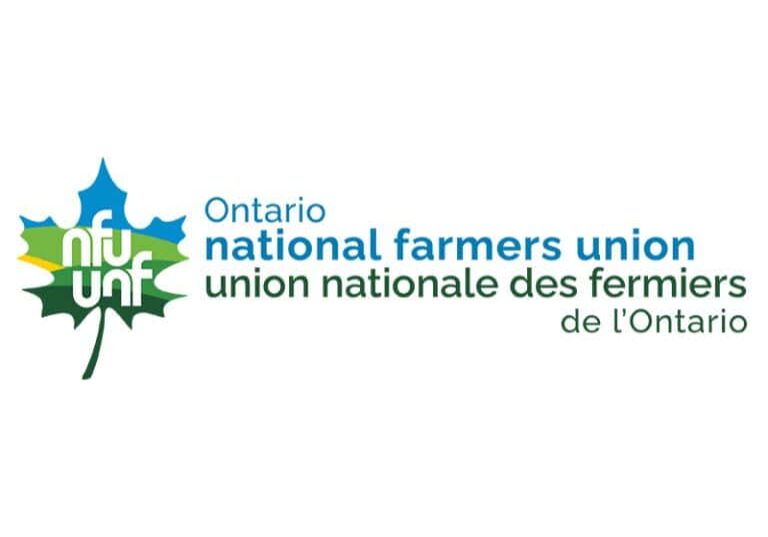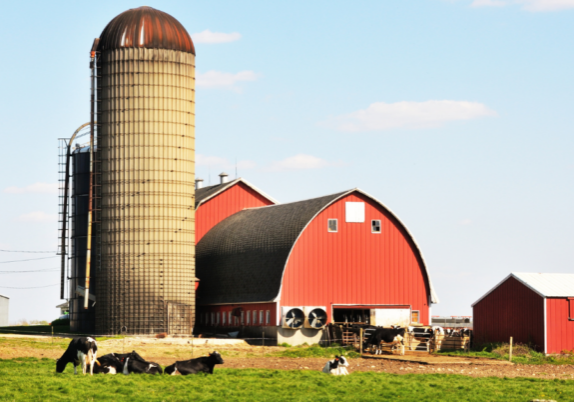Response to Proposed Changes to the Conservations Authorities Act (ERO 019-6141)

November 24, 2022
Re: ERO 019-6141 Legislative and regulatory proposals affecting conservation authorities to support the Housing Supply Action Plan 3.0
Dear MNRF Public Input Coordinator,
The National Farmers Union – Ontario (NFU-O) is responding to ERO 019-6141 to express grave concerns with proposed changes to the Conservation Authorities Act that would limit Conservation Authorities (CAs) oversight on watershed and conservation planning as it relates to housing development projects.
The NFU-O is an accredited farm organization representing thousands of sustainable family farmers in Ontario and has advocated for farm families across Ontario and Canada since 1969. The NFU-O believes that the family farm should be the primary unit of food production in Ontario. Members work together to achieve agricultural policies that ensure dignity and income security for farm families, while protecting and enhancing rural environments for current and future generations. The NFU-O has frequently spoken out on the importance of the Conservation Authorities Act and the ability of CAs to respond innovatively and effectively to the needs and priorities of local communities, including farmers. Most recently, in June 2021, the NFU-O participated in the Ontario Government consultation process on CAs, where we encouraged CAs to work with diverse community advisory boards and called for strengthening the CAs role in providing science-based watershed level planning across the province.
The NFU-O believes strongly that Conservation Authorities play a vital role in promoting and maintaining healthy, biodiverse ecological systems that farmers rely on for production. Like many other environmental and housing organizations, the NFU-O does not believe the removal of CAs’ powers is a necessary requirement to address the affordable housing supply crisis. There is plenty of land available within existing urban boundaries for housing development, and the CAs’ current powers to protect the remaining natural heritage and agricultural land surrounding Ontario’s rural and urban communities is necessary to uphold the provincial policy directives of the Local Food Act, 2013, to feed a growing population, and ensure that local greenspace and farmland provides economic, social, and health benefits for all Ontarians.
The NFU-O is particularly concerned about the following regulatory changes affecting CAs within proposed Bill 23, More Homes, Built Faster:
(1) Bill 23 prevents CAs from doing the job they are mandated to provide, with negative impacts for farmers and farmland
We are concerned about the ways Bill 23 handcuffs Conservation Authorities (CAs) from holistic watershed planning and management. We do not believe that the CAs’ purview should be limited to assessing flooding and hazards, instead of balancing biodiversity conservation with recreational use, and managing wetlands and waterways through policies that can address climate change mitigation and adaptation.
We are against the measures in Bill 23 that limit CAs from reviewing and commenting on development-related proposals and from appealing land use planning decisions that may have negative impacts on natural heritage and agricultural lands.
Even with maintaining CAs assessments of flooding hazards, the NFU-O is concerned that deregulating the role CAs plan in the development planning process and waiving the requirement for CA permits before developers break ground will increase flood risks. In the face of increased drought risk and unpredictable weather patterns due to climate change, responsible water management is extremely important to Ontario farmers. Flooding threatens waterway contamination when waste is washed into water systems. Furthermore, any disruption of above and below ground waterways could result in shifting the water table on farms with catastrophic implications for crop yields.
(2) Bill 23 starves necessary conservation measures of public funds
The CAs’ fees would be frozen by the Bill, which will starve CAs of funds. Freezing Conservation Authority fees undermines their ability to enforce conservation and to raise funds. This will set CAs on a path to becoming defunct.
In addition, Bill 23 transfers much of the CAs’ functions over to municipalities that lack the resources and expertise to adequately protect sensitive ecosystems, especially as Bill 23 disallows municipalities from collecting certain developer levies and property taxes.
The NFU-O believes it is crucial to ensure that the CAs have the staff and financial resources to fulfill its mandate to protect natural heritage and agricultural lands.
(3) Removing CA management over agricultural and natural heritage lands
Conservation Authorities currently manage over 145,000 hectares of land, including approximately 1200 hectares leased to farmers, as well as natural heritage areas that are critical flood control, water quality, and recharge areas. The NFU-O is against the measures in Bill 23 that require CAs to identify lands they own and control that could be used for housing developments. Instead of protecting agricultural and natural heritage lands, Bill 23 is asking the CAs to play a role in their destruction. The NFU-O holds that it is imperative these lands remain protected by CAs against development for the continued viability of our food systems (Ontario farmers’ ability to grow food closest to where it is needed) and our province’s ecological health.
The NFU-O finds the proposed changes to CAs’ power and authority to be misguided attempts to streamline irresponsible development at the cost of our food security and environmental health. The removal of CA oversight to development projects will see our base of farmland diminish, cause ecological fallout to our natural heritage systems such as waterways and wetlands, and will leave Ontarians ill-prepared to adequately adapt to the climate change emergency.
Sincerely,
Max Hansgen
President, National Farmers Union – Ontario








